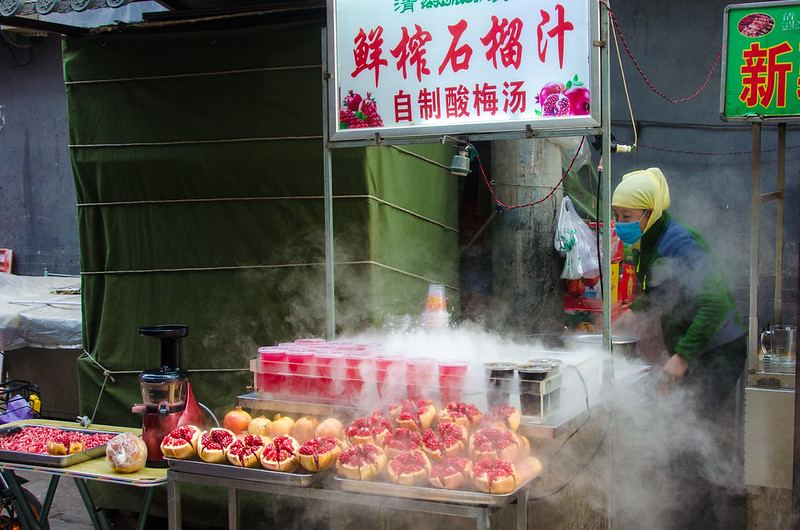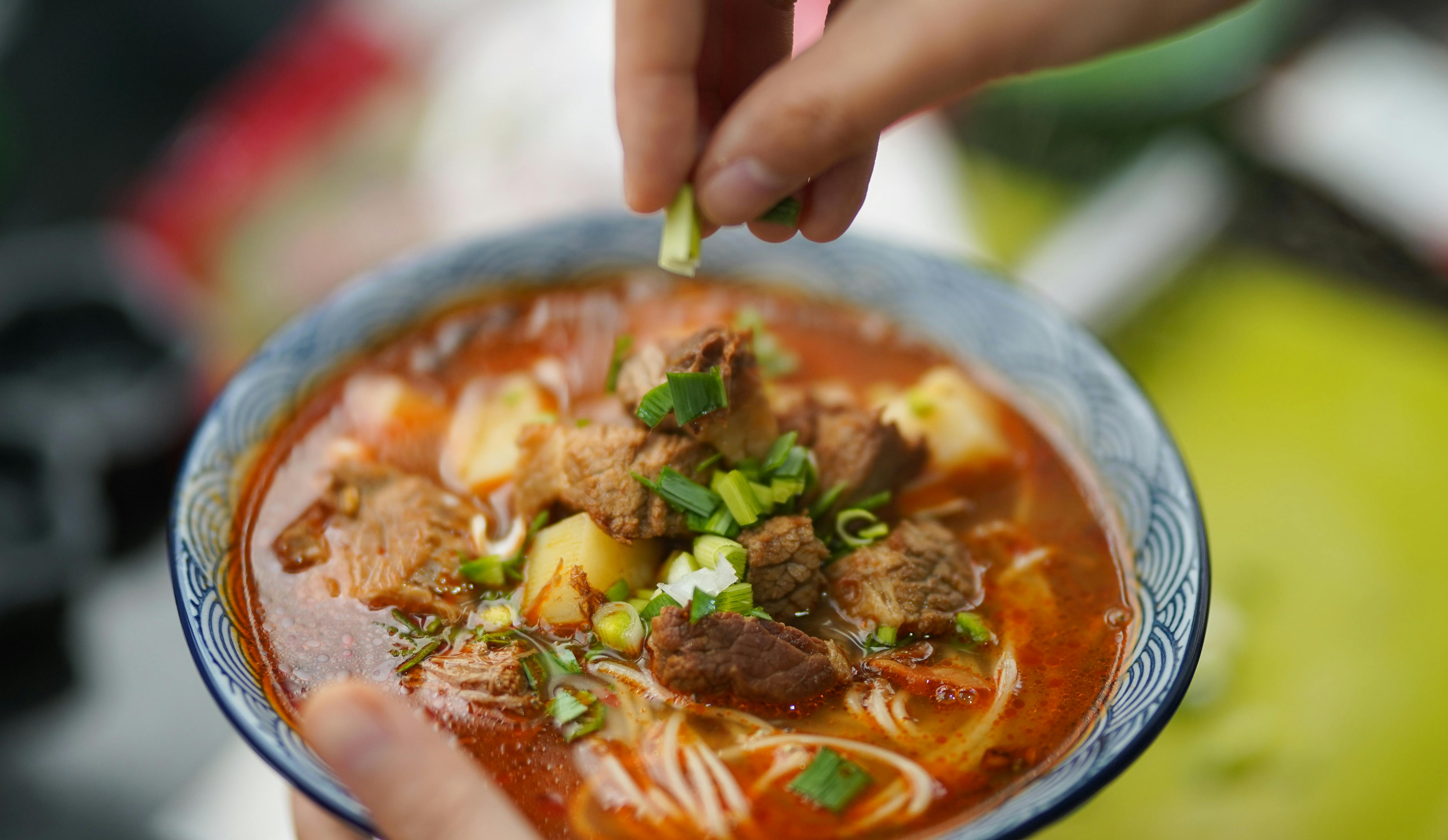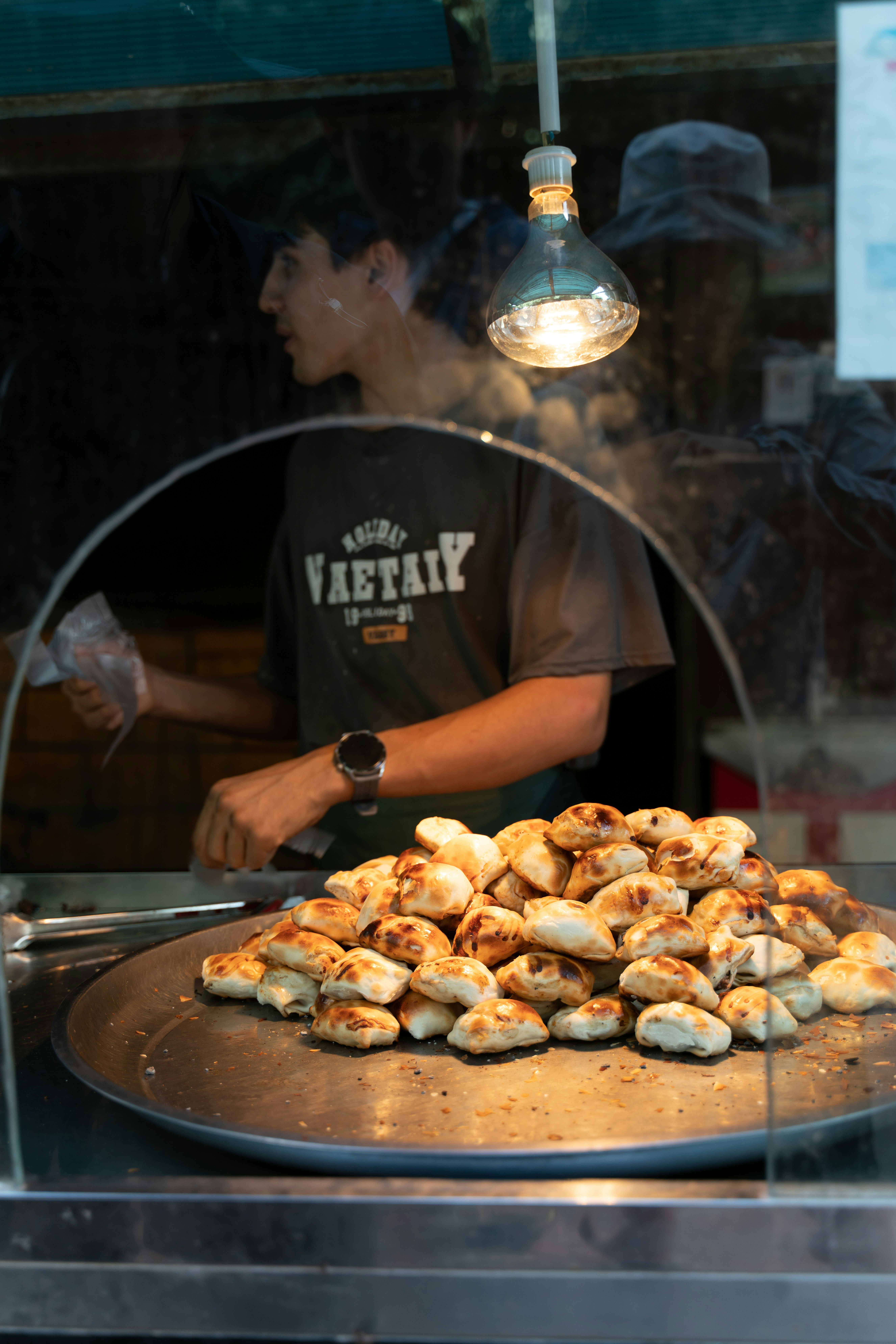The Ultimate Halal Food Adventure in China: A Culinary Journey Through Six Regions
Embark on an unforgettable halal food tour across China, exploring the rich tapestry of Muslim Chinese cuisine from Beijing to Xinjiang.
A Halal Feast Across China: Exploring Muslim Culinary Traditions 🍜🇨🇳
Welcome, halal food enthusiasts and cultural explorers! Prepare your taste buds for an extraordinary journey through China’s diverse landscape of Muslim cuisine. From the hearty lamb dishes of Xi’an to the delicate dim sum of Guangzhou, and the unique flavors of Xinjiang, this trip will take you on a gastronomic adventure that showcases the rich heritage of Chinese Islamic food culture. Let’s dive into the history, famous dishes, and must-visit restaurants that make up China’s halal food wonderland.
The Rich History of Muslim Cuisine in China 📜
Islam arrived in China over 1,400 years ago via the Silk Road, bringing with it a unique culinary tradition. Today, Chinese Muslim cuisine, particularly that of the Hui and Uyghur ethnic groups, is an integral part of China’s food landscape. It combines traditional Chinese cooking techniques with halal ingredients, creating a distinctive and delicious fusion.
💡 Halal Trivia: The Chinese term for halal is “清真” (qingzhen), which literally means “pure and true.”
Your Halal Food Itinerary 🗺️
1. Beijing: Imperial City, Muslim Quarter Delights
Begin your journey in Beijing, where ancient history meets a thriving Muslim community.
Must-Try Dishes:
- Beef or Mutton Hot Pot: A communal dish perfect for cold Beijing nights
- Xianbing (馅饼): Savory stuffed flatbreads
- Lamb Skewers (羊肉串): Spiced and grilled to perfection
💡 Cultural Tip: Visit the historic Niujie Mosque, the oldest and largest mosque in Beijing, built in 996 AD.
2. Xi’an: Heart of Hui Muslim Culture
Next, head to Xi’an, a city with over 1,300 years of Islamic history and a vibrant Muslim Quarter.
Must-Try Dishes:
- Roujiamo (肉夹馍): Braised meat stuffed into a crispy, flatbread-like bun
- Yangrou Paomo (羊肉跑馍): Lamb soup served with crumbled flatbread
- Liangpi (凉皮): Cold noodle dish made from wheat or rice flour, served with a tangy and spicy sauce

3. Lanzhou: Noodle Paradise
Lanzhou, capital of Gansu Province, is famous for its hand-pulled noodles and strong Muslim influence.
Must-Try Dishes:
Lanzhou Beef Noodles (兰州牛肉面): The city’s signature dish

The famous Lanzhou Beef Noodles. Hui-style Niangao (年糕): Sweet rice cakes
Shoupa Meat (手扒肉): Hand-grabbed mutton
💡 Noodle Tip: Watch the skilled noodle makers at work - they can make noodles of different thicknesses just by varying the number of pulls!
4. Yinchuan: Ningxia’s Halal Haven
Yinchuan, capital of the Ningxia Hui Autonomous Region, offers a unique blend of halal cuisine.
Must-Try Dishes:
- Yangrou Paomo (羊肉跑馍): Mutton soup with flour balls
- Youxiang (油香): Deep-fried twisted dough
5. Ürümqi, Xinjiang: Uyghur Culinary Paradise
Next, venture to Ürümqi, the capital of Xinjiang Uyghur Autonomous Region, where you’ll experience the unique flavors of Uyghur cuisine.
Must-Try Dishes:
Polo (抓饭): Uyghur-style pilaf with mutton and carrots
Laghman (拉面): Hand-pulled noodles with meat and vegetables
Samsa (烤包子): Baked pastries filled with minced meat and onions

Xinjiang Style Samsa. Kebabs (烤肉): Especially lamb skewers spiced with cumin and chili
💡 Cultural Tip: Try Uyghur milk tea, a unique blend of black tea with milk, salt, and sometimes butter.
6. Finish your halal journey in Guangzhou, where Cantonese cuisine meets Muslim traditions.
Must-Try Dishes:
- Halal Dim Sum (清真点心): Unique halal versions of classic dim sum dishes
- Silky Chicken Soup: Soup made using black-boned silky chicken
- Beef Chow Fun (干炒牛河): Wide rice noodles stir-fried with beef
Halal Food Trip Survival Guide 🧕🏽🧑🏽🍳
- Look for Certifications: Seek out restaurants with official halal certifications.
- Learn Key Phrases: “Qingzhen” (清真) means halal in Chinese.
- Be Adventurous: Each region offers unique halal dishes - don’t be afraid to try new things!
- Respect Local Customs: Some restaurants may have prayer rooms or close during prayer times.
- Plan Ahead: Research halal options in advance, especially in smaller cities.
📝 Final Tips for Halal Food Adventurers
- Visa Requirements 🛂: Check the latest visa policies. As of 2024, there’s a 15-day visa-free policy for certain nationalities.
- Prayer Times 🕌: Many major cities have apps or websites listing local prayer times and mosque locations.
- Dietary Preferences 🍖: Communicate any specific dietary needs clearly - not all halal restaurants are fully aware of varying Muslim dietary practices.
- Cultural Sensitivity 🤝: While China is generally welcoming to Muslims, it’s wise to be respectful and low-key about religious practices in public.
- Regional Variations 🍲: Be aware that halal food varies greatly across China. Xinjiang cuisine, for example, is distinctly different from Cantonese halal food.
Embarking on a halal food journey across China is not just about satisfying your hunger; it’s about experiencing the rich tapestry of flavors, history, and cultural fusion that Chinese Muslim cuisine represents. From the bustling streets of Xi’an’s Muslim Quarter to the refined halal dim sum of Guangzhou, and the unique Uyghur flavors of Xinjiang, each destination offers a unique glimpse into China’s diverse culinary heritage. So pack your bags, bring your appetite, and prepare for a halal adventure that will delight your taste buds and broaden your cultural horizons!
Happy (and halal) travels! 🍜🥢